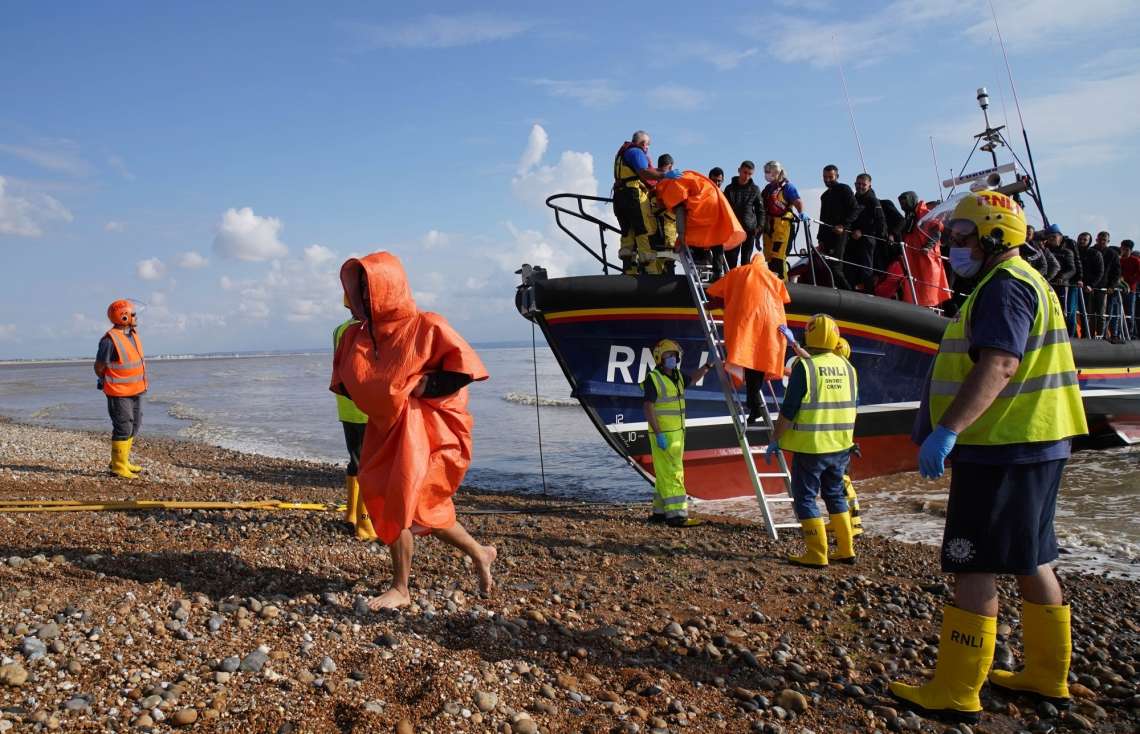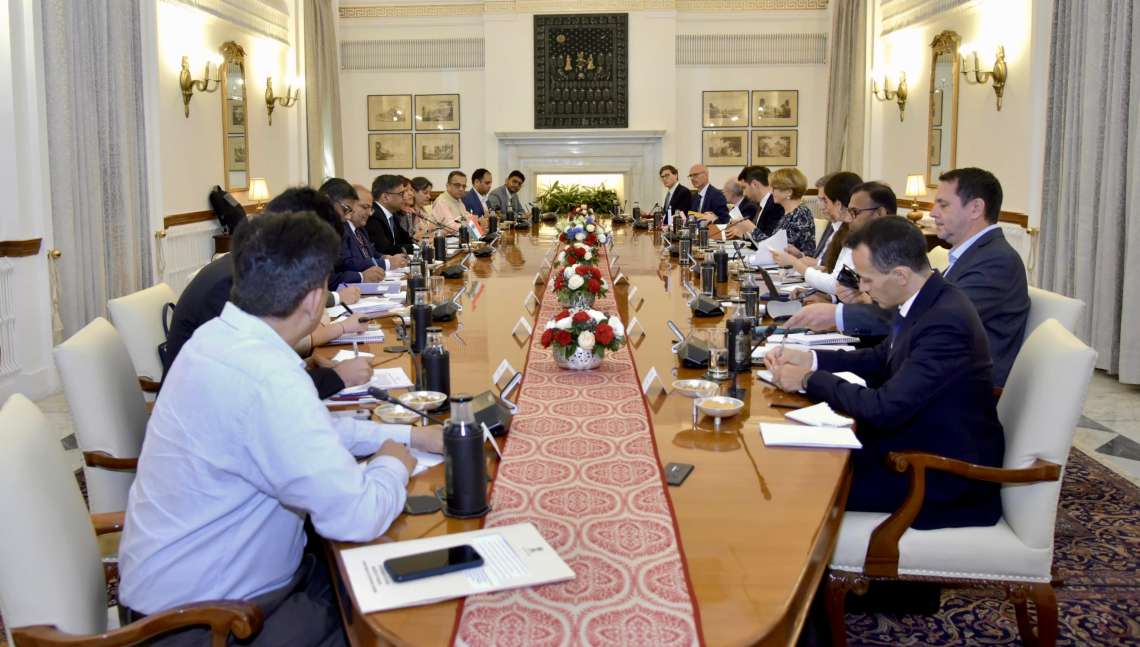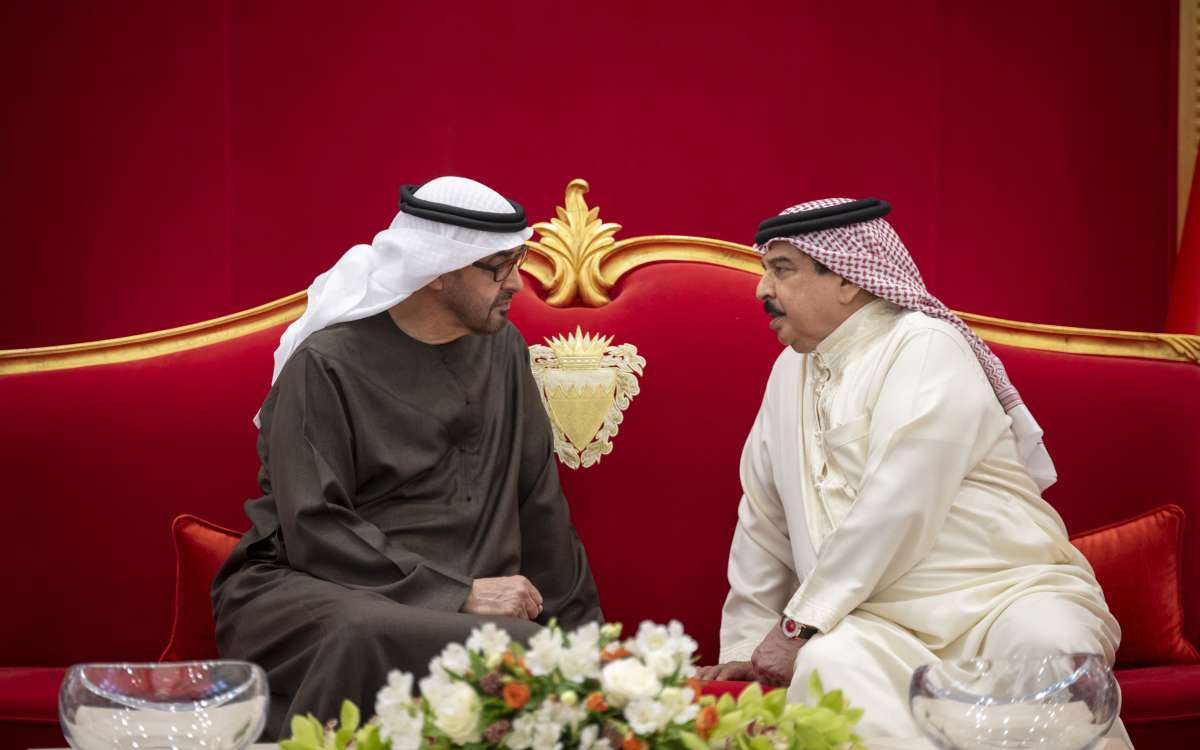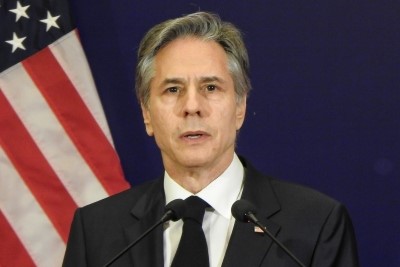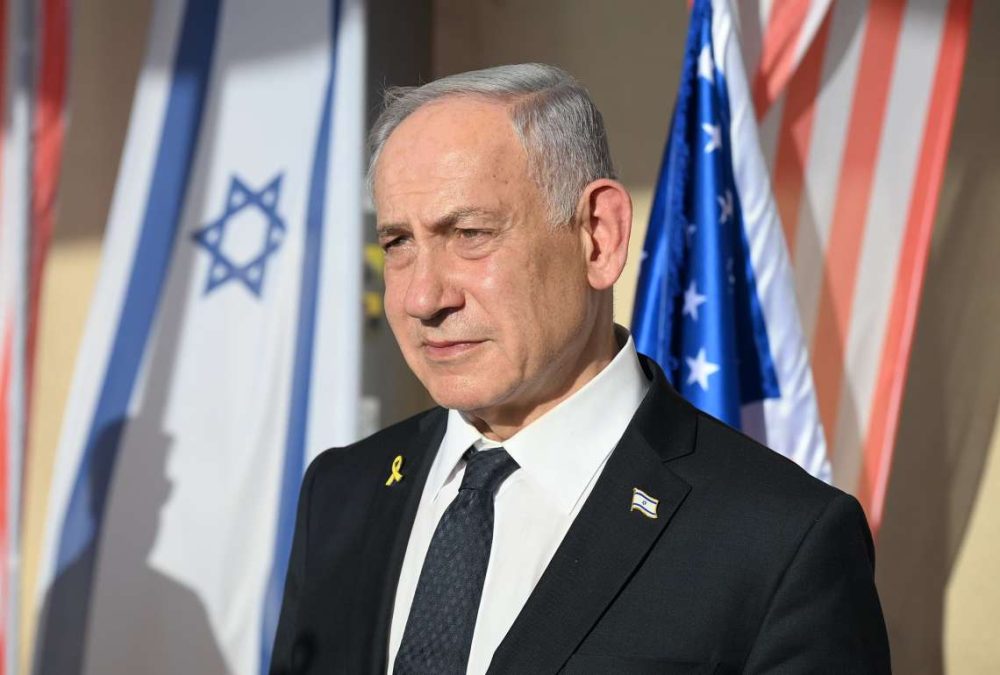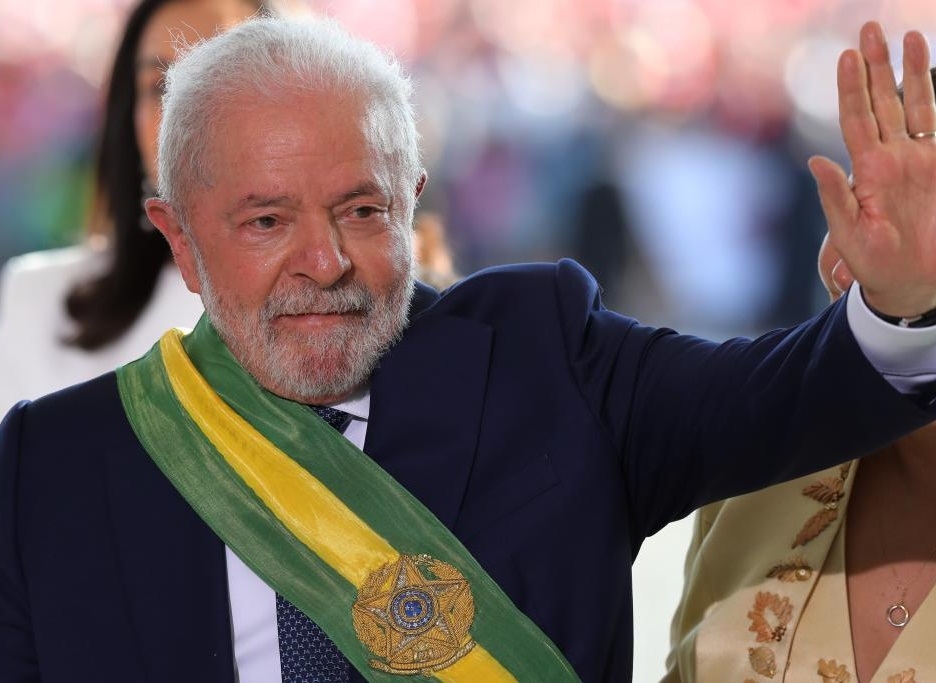France vows to deliver more arms, train soldiers in Ukraine and send up to three billion euros (USD 3.23 billion) in military aid…reports Asian Lite News
Amid the ongoing war with Russia, Ukrainian President Volodymyr Zelenskyy signed a new long-term security pact with France, hours after securing a similar deal and aid from Germany, Al Jazeera reported on Saturday.
According to the report, under the new agreement, France vows to deliver more arms, train soldiers in Ukraine and send up to three billion euros (USD 3.23 billion) in military aid.
The pact is set to run for 10 years and will not only strengthen cooperation in the area of artillery but also help pave the way towards Ukraine’s future integration into the European Union and NATO, stated Macron and Zelenskyy.
“Our cooperation yields results in the protection of life in Ukraine and our entire Europe,” Zelenskyy said on his social media platforms, shortly before meeting Macron.
Earlier on Friday, the German Ministry of Defence announced that a deal had been signed between Zelenskyy and Chancellor Olaf Scholz, Al Jazeera reported.
Al Jazeera reported that the German security pact, which will last for 10 years, commits Germany to supporting Ukraine with military assistance and hitting Russia with sanctions and export controls, and ensuring that Russian assets remain frozen.
Berlin also prepared another immediate support package worth 1.13 billion euros (USD 1.22bn) that is focused on air defence and artillery.
“The document’s importance cannot be overestimated. It makes clear that Germany will continue to support an independent Ukraine in its defence against the Russian invasion,” Scholz said.
“And if in the future there is another Russian aggression, we have agreed on detailed diplomatic, economic and military support,” he added.
In January, UK Prime Minister Rishi Sunak also signed a security accord with Ukraine.
Meanwhile, US President Joe Biden has repeatedly been stressing the importance of sending more aid to Ukraine, Al Jazeera reported.
On Tuesday, the US Senate passed a USD 61 billion aid bill for Ukraine. But the bill still faces an uncertain fate with several right-wing US Republicans in the House already saying they will block it as the money should be spent on domestic issues, Al Jazeera reported.
On Friday, Biden highlighted that the reported death of Russian anticorruption activist Alexey Navalny brings new urgency to the need for Congress to approve funds for Ukraine to stave off Moscow’s invasion.
“The failure to support Ukraine at this critical moment will never be forgotten,” Biden said. “And the clock is ticking. This has to happen. We have to help now.” (ANI)
‘Ammunition shortage hurting Ukraine’
A lack of long-range missiles and artillery shells is limiting Ukraine’s fightback against Russia, President Volodymyr Zelensky told a defense conference on Saturday, making a fresh appeal for more weapons.
Later in the day, delegates at the conference also discussed the situation in Gaza, with some holding out slim hopes of a lasting solution to end the Israel-Hamas war.
Zelensky’s call at the gathering of 180 leaders and defense chiefs at the Munich Security Conference comes at a critical juncture, with Ukraine’s troops forced to withdraw from the frontline city of Avdiivka to avoid being encircled.
“Ukrainians have proven that we can force Russia to retreat,” he said, adding that “our actions are limited only by the sufficiency and length of the range of our strength… (the) Avdiivka situation proves this.
“Keeping Ukraine in artificial deficits of weapons, particularly in deficits of artillery and long-range capabilities, allows Putin to adapt to the current intensity of the war.”
With the war about to enter its third year, Ukraine is under mounting pressure over the ammunition shortfall.
The long-term future of Western aid is also in doubt, with a possible $60-billion package of military aid held up in Washington since last year because of wrangling in Congress.
Seeking to allay fears over US stamina in helping Ukraine, Vice President Kamala Harris said after talks with Zelensky that her country would not allow political brinksmanship to stand in the way of support to Kyiv.
“As it relates to our support for Ukraine, we must be unwavering and we cannot play political games,” she said.
Zelensky said he believed in the “wise decision” of the US Congress and expressed gratitude for Joe Biden’s “full support” following a telephone call with the US president.
In a White House statement, Biden blamed congressional inaction for Ukrainian soldiers having to ration ammunition and contend with dwindling supplies before their withdrawal from Avdiivka
On top of the war in Ukraine, the conflict between Israel and Hamas has added to the concerns for the delegates gathered in Munich.
Speaking at the conference, Qatar’s Prime Minister Mohammed bin Abdulrahman Al-Thani provided a gloomy assessment of talks to seek a ceasefire in the more than four-month-old Gaza conflict.
“The pattern in the last few days is not really very promising,” said Al-Thani, whose country has played a key mediation role.
“Time is not in our favor,” he warned, with the Muslim holy month of Ramadan set to begin on March 10.
Failure to reach a deal could lead to a wider escalation in the region, he warned, as hundreds of thousands of Gazans faced a dire humanitarian situation.
Some 1.4 million are squeezed into the southern city of Rafah, close to the border with Egypt, as Israel prepares a new incursion in the area.
The Gaza war began with Hamas’s unprecedented October 7 attack which resulted in the deaths of about 1,160 people in Israel, mostly civilians, according to an AFP tally of Israeli official figures.
Militants also took about 250 people hostage, 130 of whom are still in Gaza, including 30 who are presumed dead, according to Israeli figures.
Israel’s retaliatory assault on Gaza has killed at least 28,858 people, mostly women and children, according to the territory’s Hamas-run health ministry.
The foreign ministers of Egypt and Saudi Arabia also underlined in Munich the catastrophic situation facing civilians in Gaza.
Diplomats seeking an end to the conflict said however that there may be a unique chance to end the cycle of violence in the next months.
Earlier in the day, US Secretary of State Antony Blinken said Israel had an “extraordinary opportunity” to normalize relations with almost every Arab nation, if the Gaza conflict came to an end.
Blinken, who has traveled several times to the Middle East since the war erupted, had been in talks with key figures in the region to seek a truce deal and “an enduring end” to the Israel-Hamas war.
There was however an “imperative to proceed to a Palestinian state — one that also ensures the security of Israel,” Blinken said in Munich.
Israeli President Isaac Herzog, who held talks with Blinken, urged Saudi Arabia to normalize ties with his country, saying that would be a win against Hamas.
Stopping efforts at normalization that had been progressing before the war was among Hamas’s aims when it launched its October 7 attack, he said.
“That is why moving on with Saudi Arabia will clearly be a victory over what Hamas did,” he added.
ALSO READ: Second UAE aid ship arrives at Al Arish Port




